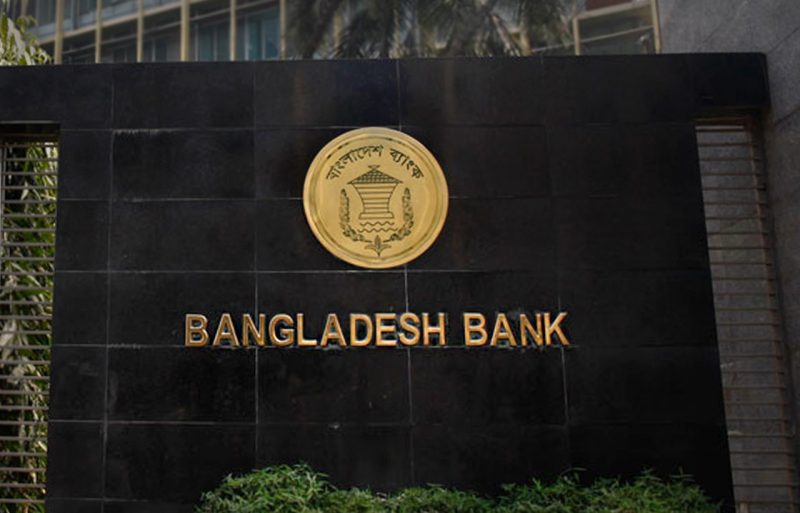News Flash
News Flash

DHAKA, Feb 10, 2025 (BSS) - Bangladesh Bank (BB) will continue 'tight' mood in monetary policy statement (MPS) for the second half (H2) (January-June) of current fiscal 2024-25 (FY25) expecting the general inflation rate to come down to 7-8 percent by June in this year.
“The main goals of MPS are to contain inflation, stabilize the foreign exchange market while building foreign exchange reserves of BB, and address the rapidly rising non-performing loans in banks and financial institutions. Given the global and domestic realities, BB remains committed to a tight monetary policy stance for the second half of FY25,” said BB Governor Dr Ahsan H Mansur.
The BB governor was announcing the MPS today at a press conference at the central bank headquarters in the city.
He said with BB’s firm policy stance and close collaboration with key stakeholders, inflation is expected to decline further in the near future and the target range of 7-8 percent is achievable.
The BB governor expected that inflation will come down to 5 percent by next fiscal 2025-26 (FY26).
According to the Bangladesh Bureau of Statistics (BBS), the general point-to-point inflation rate in the country slightly eased in January last as it reached 9.94 percent down from 10.89 percent in December, 2024.
At a presentation, Deputy Governor of the central bank Dr Md Habibur Rahman said in light of the recent inflation results, the central bank has decided to maintain the policy rate unchanged at 10.0 percent.
“The Standing Lending Facility (SLF) rate will remain at 11.5 percent, while the Standing Deposit Facility (SDF) rate will stay at 8.5 percent, establishing a policy rate corridor of ± 150 basis points,” he added.
Given the current inflation landscape, Habibur Rahman mentioned, “BB anticipates a decrease in inflation in the coming months. This outlook is supported by actions already taken by the monetary and fiscal authorities, continued stability in the exchange rate, ongoing global commodity price moderation, and anticipated output expansion in agricultural products like rice (boro) and other agricultural products.”
He said BB will continuously monitor inflation trends and adjust interest rates and liquidity measures as necessary.
The BB deputy governor, however, said BB has been implementing a crawling peg exchange rate mechanism to enhance both flexibility and stability of the rate in the foreign exchange market.
“This framework is designed to ensure stability of the exchange rate while preparing for an eventual transition to a more flexible exchange rate system in the near future. BB has already stopped intervening in the exchange market by halting completely the sales of foreign exchange in the interbank market to support exchange rate stability,” he added.
He said BB has established a methodology for calculating the Foreign Exchange Spot Reference Exchange Rate (RR) which is prepared and published twice per day.
Prudent exchange rate management under the current system is anticipated to strengthen remittance inflows, stimulate export activities, and augment foreign exchange reserves, he added.
Habibur Rahman said the government and the BB have embarked on a series of ambitious reform initiatives designed to avert any potential crisis in the banking system and pave the way for long-term economic stability.
“The success of these ongoing initiatives will hinge on their effective implementation, along with forthcoming measures that aim to develop comprehensive solutions for distressed banks in line with the findings of the Asset Quality Review (AQR),” he added.
Through these efforts, he said, BB seeks to restore sound governance practices and enhance stakeholder confidence in the banking system, thereby fostering a more resilient and trustworthy financial environment for future growth.
On 5 August 2024, a student-led mass uprising forced an authoritarian regime to step down, paving the way for significant political transformation and extensive economic and legal reforms in Bangladesh. As the country enters a new era, it presents opportunities for much-needed reforms in the financial sector that can support the revival of the economy, said the BB in a statement.
In this context, the central bank said it has initiated essential reforms to address long-standing structured problems in the banking sector and rebuild trust in the sector. The key focus areas of the reforms include restoring macro-economic stability by addressing the inherited external and domestic sector imbalances and restoring price stability through lower inflation.
Accordingly, BB has developed clear and forward-looking strategies, started implementing robust reform measures to tackle economic and financial challenges. As part of its implementation strategy, three taskforces have been established with the following objectives: (i) conducting a comprehensive asset quality review of banks’ assets to lay the groundwork for a thorough banking sector reform program; (ii) enhancing the capacity and efficiency of BB with focus on effective enforcement of regulations and ensuring good governance in the banking system; and (iii) aggressively pursuing the recovery of stolen assets both domestically and internationally.
This edition of BB's half-yearly MPS primarily explains the monetary policy approach for the second half of FY25. It considers political and economic conditions, global and domestic market trends, and the economic and financial data of the first half of FY25.